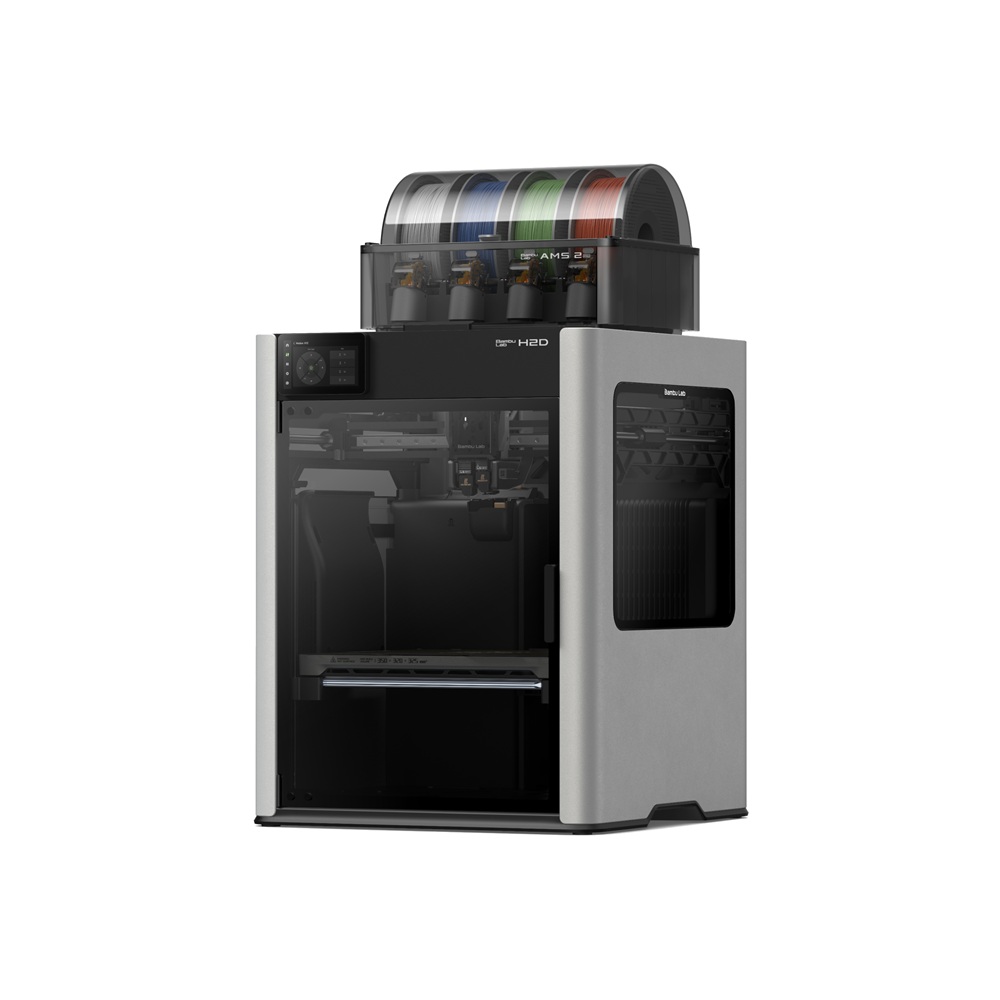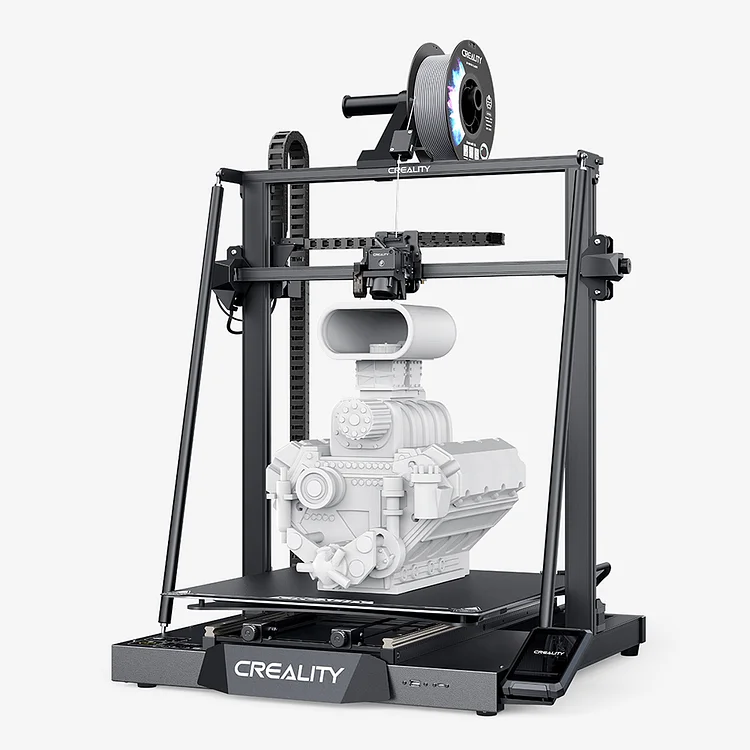Compare H2D vs CR M4
Comparison between the best 3D printers
Choose the best 3D printer at the best price. The cheapest 3D printers are here.
Buy a 3D printer here with 3D Fila.
 |
 |
|
| Model | H2D |
CR M4 |
| Printing Material | Filament | Filament |
| Buy Filament for Bambu Lab H2D | Buy Filament forCreality 3D CR M4 | |
| Estimated price | $1899,00 | $1099,00 |
| Manufacturer | Bambu Lab | Creality 3D |
| Release Year | 2025 | 2023 |
| Print Volume [mm] | 350x320x325 | 450x450x470 |
| Printer Size [mm] | 492x514x626 | 655x700x865 |
| Weight [kg] | 42,3 | 23 |
| Power Loss Recovery | YES | YES |
| Enclosed printer | YES | NO |
| Bed Leveling | Automatic | Automatic |
| Filament End Sensor | YES | YES |
| Bed type | Heated | Heated |
| Power supply system | Direct Drive | Direct Drive |
| Standard nozzle | 0,4 | 0,4 |
| Maximum Nozzle Temperature [°C] | 350 | 300 |
| Maximum Bed Temperature [°C] | 120 | 100 |
| Maximum printing speed [mm/s] | 600 | 180 |
| Filament holder | YES | YES |
| Camera for supervision | YES | YES |
| Recommended filaments | PLA, PETG, ABS, ASA, TPU, PVA, Nylon (PA) | PLA, PETG, TPU, ABS, PLA-Wood, PA, PLA-CF |
| Recommended slicers | Bambu Studio | Cura, Simplify, Slic3r, IdeaMaker |
| Maximum Resolution [mm] | 0,01 | 0,1 |
| Processor | ||
| Display | Touchscreen 5'' | Display touchscreen 4,3'' |
| Power Supply | 110/220V / 800W | |
| Connectivity | Wifi, Bambu bus, Cartão SD | SD / USB / Wi-Fi |
| Operating systems | Windows, Mac, Linux | Windows, Mac, Linux |
| Date of registration in the system | 2025-03-31 | 2023-02-06 |
| Release date | 2025 | 2023 |
| Extra features | Bambu Labs H2D combines high-speed 3D printing with a chamber heated up to 65 °C, dual extrusion with automatic nozzle switching, an AMS for filament drying and exchange, and AI sensors that detect failures. It offers optional laser and digital cutting capabilities, features intelligent calibration through computer vision, vibration control, enhanced fire safety, and real-time camera monitoring. | The Creality CR-M4 printer stands out for its easy assembly and automatic table leveling. With dual-gear extruder technology and direct drive, it ensures quality prints. It offers Wi-Fi and LAN connections for easy file sending. Its large construction volume of 450x450x470 mm allows for bold projects. It has linear rails and a high-power Y motor, supporting up to 30 kg on its plate. The innovative design includes an efficient cooling system and a removable screen controller, optimizing usability and comfort during printing. |
| Support for multiple colors and materials (AMS and CFS) | YES | NO |
Notes * |
||
| Cost-benefit | 7 / 10 | 6 / 10 |
| Hardware | 8 / 10 | 3.2 / 10 |
| Tela | . | . |
| Print volume | 4 / 10 | 4 / 10 |
| Performance | 5 / 10 | 1 / 10 |
Conclusion |
| In conclusion, both the Bambu Lab H2D and Creality 3D CR M4 offer distinct advantages suited for different types of users and projects. The H2D, despite its higher price, delivers advanced features such as dual extrusion capabilities, enhanced print speeds, and a more sophisticated monitoring system. Its enclosed design and superior maximum temperatures also make it favorable for handling a wider variety of materials with higher precision. Furthermore, the H2D's support for multiple colors and materials via AMS and CFS positions it well for complex printing tasks. On the other hand, the CR M4 stands out as a more budget-friendly option, providing a spacious print volume and solid performance for simpler projects. While it lacks some advanced features found in the H2D, the CR M4 impresses with ease of assembly and usability, making it a practical choice for beginners or those looking for reliable, straightforward 3D printing without breaking the bank. Ultimately, the decision between these two models should hinge on your specific needs—whether you're prioritizing speed and versatility with the H2D or seeking affordability and basic functionality with the CR M4. |

